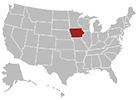
When you are in the hospital or another medical-related setting, there are people there who have the job of making sure all of the equipment is clean and sterile for the doctors and nurses to use.
These people are called sterile processing technicians or central service technicians.
Sterile processing technicians are important to hospital settings, but many people don’t even know they exist.
What exactly does a sterile processing technician do, what schools offer training, and how much does a sterile processing technician make?
These are some of the questions that we will answer and more.
Page Navigation
Steps to Become a Sterile Processing Technician
The first step in becoming a sterile processing technician is to earn a high school diploma or a GED equivalent.
High school courses that can help you in the sterile processing field can include anatomy, biology, chemistry, health sciences, technology, and computer science.
Step number two involves getting a post-secondary certificate in a sterile processing technician training program.
In the next section, we will discuss in more detail the schools in Iowa that provide sterile processing technician training.
The third step is completing a clinical internship.
A clinical internship must take place in an approved hospital or medical facility.
The internship gives more hands-on training to develop skills and gain a better understanding of the sterile processing field.
After completing a clinical internship, the next step is to take a professional certification exam to get certification in sterile processing.
This step is not required, but a certificate will help solidify your qualifications, and you will have a better chance of landing a job as a sterile processing technician.
Another step that is not required, but helpful, is to stay on top of education and learning in your field.
As time moves on, so do new technologies and ways of doing things.
Staying on top of new changes helps you stay informed of new changes and helps you adapt accordingly.
Sterile Processing Technician Schools in Iowa
Iowa Western Community College

The sterile processing technician program that Iowa Western Community College offers is a course that lasts approximately 33 sessions or about 2 months long.
A few things must take place before you can register for the sterile processing technician program at Iowa Western Community College.
They require you to send in the documentation for all of your current vaccinations, including COVID and a two-step Tuberculin skin test, among others.
When you register for the program, Iowa Western Community College will perform drug screening and background checks prior to starting the course.
To continue with the program, you must pass the background check and drug screening.
The cost of registration and other fees related to the course or program is around $950 in total. $800 of the cost includes tuition, background check, drug screening, workbook, supplies, and textbook.
The remaining $150 is for a non-refundable processing fee.
In the sterile processing technician program at Iowa Western Community College, you will learn the following:
- The proper techniques for cleaning and sterilizing medical instruments
- The categories and names of medical instruments and how to transfer and store them properly
- Infection control methods and microbiology
- Following the completion and work hour requirements, you can take the National Certification as a Sterile Processing Technician
Des Moines Area Community College

The program that Des Moines Area Community College offers for sterile processing technicians is one course.
The course is made up of 40 hours of classroom instruction with 20 hours of clinical training.
The sterile processing technician course costs about 745 dollars and lasts about 10 weeks.
Before getting accepted into the program or course, students are required to pass a background check and have the required vaccinations including the COVID vaccine.
Some of the things the course teaches include the following:
- Basic microbiology
- Disease transmission
- Asepsis
- Decontamination
- Instrumentation
- Preparation and packaging for sterilization
Sterile Processing Technician Schools in Iowa – Summary Table
Top 2 Schools in Iowa
| School Name | Address |
|---|---|
| Iowa Western Community College | 2700 College Rd, Council Bluffs, IA 51503, USA |
| Des Moines Area Community College | 1144 7th St, Des Moines, IA 50314, USA |
Salary
Now that we know what a sterile processing technician is and how to become one, let’s talk about the salary.
How much does a sterile processing technician make?
According to salary.com, the average base pay in the United States for a sterile processing technician is approximately $45,891 with the low pay being $36,214 and the high being $59,973.
In the state of Iowa, the annual salary for a sterile processing technician ranges from $34,657 as its low up to $57,394 as it’s high.
The average base pay for a sterile processing technician in Iowa is approximately $43,918.
Annual Salary Range:Average Salary of Sterile Processing Technicians in Iowa
| City Name | Salary |
|---|---|
| Des Moines | $36,860 |
| Cedar Rapids | $36,520 |
| Davenport | $36,220 |
| Sioux City | $33,130 |
| Waterloo | $34,710 |
| Iowa City | $36,220 |
| Council Bluffs | $36,090 |
| Cedar Falls | $34,410 |
| Ames | $36,520 |
| West Des Moines | $36,860 |
Regional Salary in Iowa
| Region | Employed | Avg. Annual Salary | Avg. Hourly Pay | Top 10% Annual Salary | Bottom 10% Annual Salary |
|---|---|---|---|---|---|
| Cedar Rapids, IA | 40 | $42,730 | $20.55 | $51,860 | $37,320 |
| Davenport-Moline-Rock Island, IA-IL | 60 | $40,180 | $19.32 | $49,890 | $34,500 |
| Des Moines-West Des Moines, IA | 100 | $40,530 | $19.49 | $49,510 | $35,250 |
| Iowa City, IA | 160 | $41,570 | $19.98 | $54,060 | $36,430 |
| Sioux City, IA-NE-SD | 50 | $40,960 | $19.69 | $50,800 | $34,090 |
| Waterloo-Cedar Falls, IA | 50 | $38,420 | $18.47 | $44,510 | $34,540 |
* Employment conditions in your area may vary.
Frequently Asked Questions
What requirements does the state of Iowa have for sterile processing?
Iowa doesn’t have any certification requirements for a person to work as a sterile processing technician.
Although it isn’t required, many employers are more likely to hire you if you complete a certification program and can show that you know your stuff.
What is the job outlook for a sterile processing technician?
For the United States, the growth outlook is estimated at 8 percent over the next few years.
The state of Iowa’s growth is estimated to be at 6 percent in the next few years.
If certification isn't required in Iowa, why should I get certified for sterile processing?
Even though Iowa doesn’t require certification, it is still a good idea to get a sterile processing technician certificate.
Here is an example of why it might come in handy.
There are two applicants for a sterile processing technician job.
One person has additional education, training, and a certificate showing they have experience in the field.
The other person just graduated high school and took all of the science and health classes offered in their high school.
Which person do you think the employer is going to choose?
If you picked the one with the sterile processing technician certification, then you guessed right.
It gives you a better chance of getting hired by an employer.
Where can a sterile processing technician find a job in Iowa?
While many people envision sterile processing technician jobs as being in hospitals, other places use sterile processing technicians as well.
Other places can include physician offices, dental offices, and outpatient centers.




